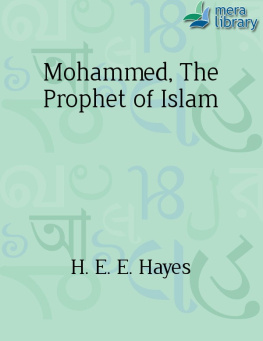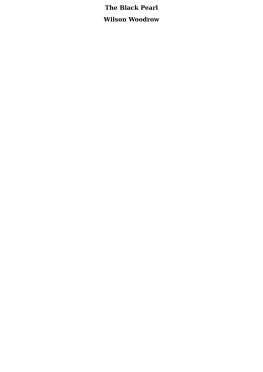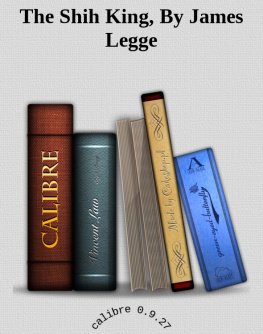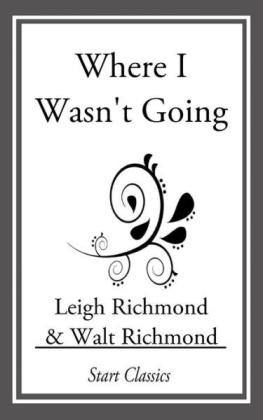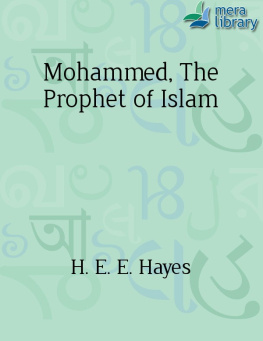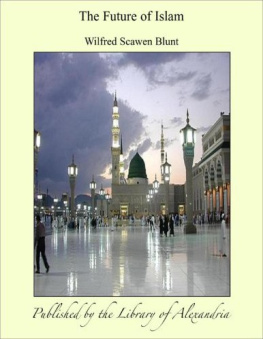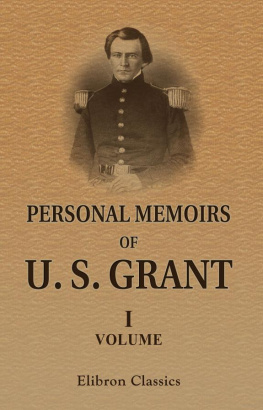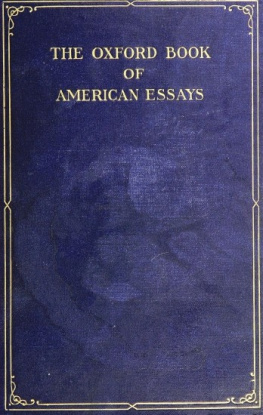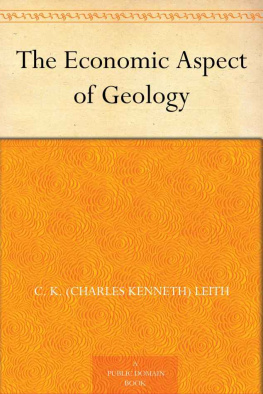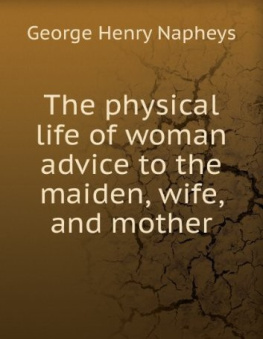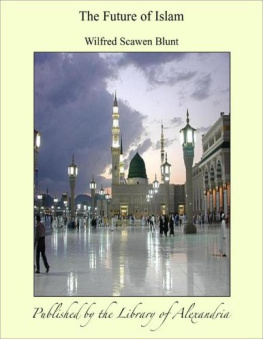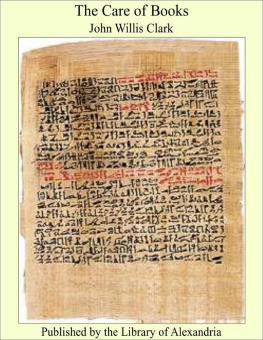H. E. E. (herbert Edward Elton) Hayes - Mohammed, the Prophet of Islam
Here you can read online H. E. E. (herbert Edward Elton) Hayes - Mohammed, the Prophet of Islam full text of the book (entire story) in english for free. Download pdf and epub, get meaning, cover and reviews about this ebook. year: 2006, publisher: Hard Press, genre: Science. Description of the work, (preface) as well as reviews are available. Best literature library LitArk.com created for fans of good reading and offers a wide selection of genres:
Romance novel
Science fiction
Adventure
Detective
Science
History
Home and family
Prose
Art
Politics
Computer
Non-fiction
Religion
Business
Children
Humor
Choose a favorite category and find really read worthwhile books. Enjoy immersion in the world of imagination, feel the emotions of the characters or learn something new for yourself, make an fascinating discovery.
- Book:Mohammed, the Prophet of Islam
- Author:
- Publisher:Hard Press
- Genre:
- Year:2006
- Rating:4 / 5
- Favourites:Add to favourites
- Your mark:
- 80
- 1
- 2
- 3
- 4
- 5
Mohammed, the Prophet of Islam: summary, description and annotation
We offer to read an annotation, description, summary or preface (depends on what the author of the book "Mohammed, the Prophet of Islam" wrote himself). If you haven't found the necessary information about the book — write in the comments, we will try to find it.
Mohammed, the Prophet of Islam — read online for free the complete book (whole text) full work
Below is the text of the book, divided by pages. System saving the place of the last page read, allows you to conveniently read the book "Mohammed, the Prophet of Islam" online for free, without having to search again every time where you left off. Put a bookmark, and you can go to the page where you finished reading at any time.
Font size:
Interval:
Bookmark:
This eBook is for the use of anyone anywhere at no cost and with
almost no restrictions whatsoever. You may copy it, give it away or
re-use it under the terms of the Project Gutenberg License included
with this eBook or online at www.gutenberg.net
Title: Mohammed, The Prophet of Islam
Author: H. E. E. Hayes
Release Date: November 16, 2004 [eBook #14064]
Language: English
Character set encoding: ISO-8859-1
***START OF THE PROJECT GUTENBERG EBOOK MOHAMMED, THE PROPHET OF ISLAM***
E-text prepared by Michael Ciesielski
and the Project Gutenberg Online Distributed Proofreading Team
There is no God but God,
and Mohammed is the Apostle of God.
(Moslem Creed.)
Price 3d. post free,
From "Hythe House"
Greenhithe, Kent.
If you are interested in Missionary work in Moslem lands, read the
A quarterly review of current events, literature, and thought among Mohammedans; and the progress of Christian Missions in Moslem lands.
Edited by
SAMUEL M. ZWEMER, D.D.
Published by the
Christian Literature Society for India
35 John Street, Bedford Row, London, W.C.
Sent post free 1s. per copy or 4s. per annum.
SEND YOUR SUBSCRIPTION NOW.
READ ALSO THE
Published bi-monthly by the EGYPT GENERAL MISSION,
10 Drayton Park, Highbury, London, N.
1s. per annum post free.
This Magazine gives a current account of Mission work amongst the Moslems of Egyptian villages.
PRAY FOR ALL CHRISTIAN WORK AMONGST MOSLEMS
- EARLY LIFE.
- THE "CALL" TO THE PROPHETIC OFFICE.
- BIRTH OF THE ISLAMIC SOCIETY.
- GROWTH AND PROGRESS.
- WORLD CONQUEST.
- MOHAMMED AND WOMEN.
So-called Moslem missionaries are spreading through the Press such idealistic and false views of the religion and character of Mohammed, that we need to be on our guard against them.
Unbiased historians have stated that there is much that is deplorable in the life of the prophet of Islam. And it is certain that his teaching has increased the degradation of the nations that have come under its influence.
Much of the literature that is being circulated in England by the "Moslem missionaries," claims that Moslem women are better off, so far as property rights go, than their Christian sisters. However true this may be, it does not lift them out of the degradation of polygamy and concubinage, with a capricious system of divorce, which makes them the victims of the selfish baseness of their husbands and masters, which Mohammed himself sanctioned.
The following essay, it is hoped, will help to counteract the false ideas that are being scattered abroad, and lead those who read to study more deeply the problems and sorrows of millions of the Moslem subjects of our Gracious King.
The prayers of all Christians are asked on behalf of these millions, and for those who labour to preach the "unsearchable riches of Christ" amongst them.
H.E.E. HAYES.
GREENHITHE:
July, 1914.
Just as the character of Jesus is stamped upon the religion which originated in His Person, so is the character of Mohammed impressed upon the system which he, with marvellous ingenuity, founded. The practical influence of Islam upon individual lives produces results that reflect unmistakably the character of its founder, and a careful study of the tenets of the system in relation to its history enable the student to estimate the real worth of the man.
As the Apostle of God, Mohammed is the ideal of every true Moslem. His life is the standard by which the lives of his followers are tested, although he himself confesses that his life was not holy. In the Koran, and the earlier traditions, he is pictured as being in no way better than his fellows, and as weak and liable to error as the poorest of his contemporaries. Yet later tradition minimises his faults and weakness, and surrounds his person with a halo of glory that makes him appear sinless and almost divine. All the doubtful incidents of his life are either eliminated and ignored, or assiduously supported and defended by his pious, misguided followers.
It is a point in his favour that he never claimed infallibility for his actions or opinions; and his habit of attempting to cover or justify his glaring faults by suitable revelations, although indefensibly immoral, reveals the fact that he was conscious of his own shortcomings. When he was at the zenith of his power, "revelation" became merely an instrument of self glorification, licensing him in every whim and fancy, because it gave him, as the prophet of God, exemption from all law and order. His scheme was characteristically ingenious and immoral. Had he known of the divine effulgence with which he was afterwards encircled by his fanatical followers, he would, in all probability, have strongly discountenanced it. The incongruous sanctity with which his commonplace utterances and petty actions were invested would have caused fear lest it became derogatory to his creed of divine unity.
As a source of information, the traditions are obviously unreliable, for they are coloured by the excessive zeal and irrational bias of men whose judgment was warped by irrepressible fanaticism. They attributed to their hero elements that are grotesquely impossible. His advent was in their estimation, so portentous that it was celebrated by events which, for the time, upset all natural law. And his whole life has been linked with miraculous happenings of a most ludicrous type. More reasonable men have exalted the prophet because they have convinced themselves that he was what he ought to have been. This may account for the pious confidence of some of the more intelligent, who, accepting tradition as historical, have exalted their hero to the ideal, and have received the imagined glory as real. This tendency to exalt their master is well illustrated by the maxim of Shafy"In the exaltation of Mohammed it is lawful to exaggerate"a maxim invaluable to men who were seeking to glorify the prophet, and the usefulness of which was fully appreciated by the legislators and doctors when they were called upon to cope with the new relations and exigencies that came into being after his death. The conquests and progress of Islam necessitated almost daily the framing of new rules, while in the application of the old, constant modification and adaptation were required. To meet these needs, actual or supposed sayings and actions of the prophet were eagerly sought after, and, in time, with the growth of a professional body of traditionalists, all legitimate sources being exhausted, that which was doubtful, and even disputed, was accepted as authentic and reliable. Imagination augmented the legitimate springs of information, and the result was an exhaustive accumulation of precedents for every possible circumstance.
Sprenger, in his essay on "Tradition," regarding the value and nature of the material needed for compiling a life of Mohammed, says:
"During the stir and activity of the first sixty years, thousands and thousands occupied themselves with handing down traditions. In every mosque they committed them to memory, and rehearsed them in every social gathering. All such knowledge was the common property of the nation; it was learned by heart and transmitted orally. It possessed, therefore, in the highest possible degree, the elements of life and plasticity. Bunson has discovered the divinity of the Bible in its always having been the people's book. If this criterion be decisive, then no religion has better claim to be called the 'vox Dei,' because none is in so full a sense the 'vox populi.' The creations of the period we have been considering possess this character for hundreds of millions of our fellow men; for modern Islamism is as far removed from the spirit in which the Coran was composed, as Catholicism is from the spirit of the Gospel; and modern Islamism is grounded upon tradition. But in tradition we find nothing but the Ideal, Invention, Fancy, Historical facts, however they may have been floating among the people in the days if Ibn 'Abbas, and the other founders of genealogy, were trodden under feet, because men wished to remove every barrier which stood in the way of self-glorification. And of the thousand inventions which every day gave birth to, only those were recognised as true which most flattered the religious and national pride...."
Font size:
Interval:
Bookmark:
Similar books «Mohammed, the Prophet of Islam»
Look at similar books to Mohammed, the Prophet of Islam. We have selected literature similar in name and meaning in the hope of providing readers with more options to find new, interesting, not yet read works.
Discussion, reviews of the book Mohammed, the Prophet of Islam and just readers' own opinions. Leave your comments, write what you think about the work, its meaning or the main characters. Specify what exactly you liked and what you didn't like, and why you think so.

